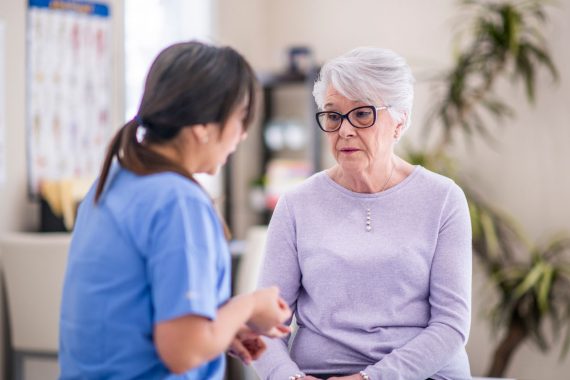Social care MOTs for over-65s proposed to curb rising costs

Older adults should receive adult social care ‘MOTs’ on reaching 65 to keep more people out of care homes in the long run, a think tank has proposed.
The Institute for Public Policy Research said the Japanese style approach to provide assessments for people on reaching pension age would reduce the need for expensive care later on.
Japan introduced proactive care assessments through a long-term care insurance model in 2000, the IPPR notes.
Under the scheme, at the age of 65, people are automatically assessed for a range of support, from home-based help with cooking and dressing to residential respite and some nursing or medical care for long-term conditions.
Care is managed by community comprehensive support centres, which employ long-term care specialists, care managers, and social workers, the report said.
Despite having the highest proportion of over-65s in the G7, Japan has half the number of people in care homes than the UK, the IPPR added.
The proposal was part of a range of suggestions to stop the spiralling costs of adult social care by pivoting towards prevention.
A more proactive approach is needed to tackle rising adult social care costs continue to increase – £23.3bn for local authorities in 2023/24 – alongside additional pressures from an ageing population.
It notes that a manifesto commitment to set up a National Care Service, being led by the Casey Commission will fail if it doesn’t take a ‘radically different’ approach to all previous attempts to address the problem.
Instead of a ‘sticking plaster’ approach to the social care crisis, which is also putting pressure on the NHS, the government should focus on supporting independent and healthy lives through a ‘Right to Live and Age Well’.
A renewed focus on prevention should include investing in age and disability-friendly communities, including exercise groups and community centres, to support older people and people with disabilities to stay healthy and active.
And there should be more training and development opportunities to carers, so they can provide better, more personalised care, the report recommended.
Dr Annie Williamson, a research fellow at IPPR, said: ‘A proactive approach to adult social care, including universal MOT-style assessments at 65 and early support, could help people maintain independence for longer while reducing long-term costs.
‘A shift to prevention will mean fewer care home admissions, better quality of life for older adults, and more sustainable funding. As the UK grapples with rising demand and strained budgets, this kind of forward-thinking reform offers a way out.’
Sir Andrew Dilnot, chair of the 2010 commission into adult social care, said: ‘This paper argues powerfully and persuasively that good social care provision can be a wonderful way of enhancing human flourishing.
‘For far far too long we have had a social care system that fails us all – those who need care, those who provide care, and those who might need care in the future. Acting now can transform lives for those with care needs, create a vibrant and exciting care sector, and finally fill this yawning and indefensible gap in our collective welfare provision.’
Visit Pulse Reference for details on 140 symptoms, including easily searchable symptoms and categories, offering you a free platform to check symptoms and receive potential diagnoses during consultations.
Related Articles
READERS' COMMENTS [1]
Please note, only GPs are permitted to add comments to articles














I really dislike the analogy of “MOT” for health screening. It’s not the same at all.
If you have 3mm of tread on your tyre, the mechanic can tell you fairly precisely how many miles it will be until you are legally obliged to change your tyre. Changing the tyre is relatively simple, quick, safe and comes with no significant side effects or risks.
None of which applies to the finding that, say, your blood pressure is 141/88, or your qrisk 17%.
OK, I grant that the article is about social not health screening. Maybe someone more informed than be can say whether social screening is more likely to resemble an MOT or a health check.